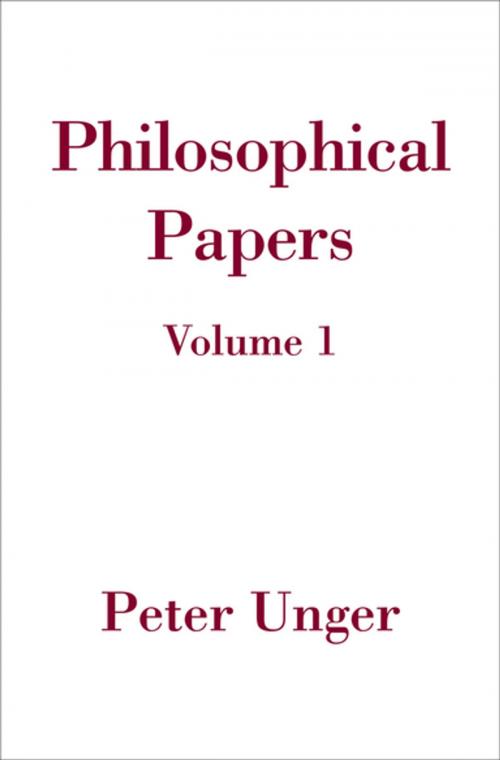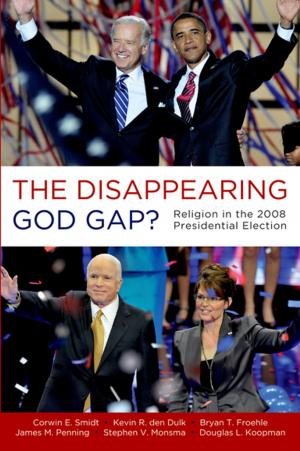| Author: | Peter Unger | ISBN: | 9780190288723 |
| Publisher: | Oxford University Press | Publication: | March 2, 2006 |
| Imprint: | Oxford University Press | Language: | English |
| Author: | Peter Unger |
| ISBN: | 9780190288723 |
| Publisher: | Oxford University Press |
| Publication: | March 2, 2006 |
| Imprint: | Oxford University Press |
| Language: | English |
While well-known for his book-length work, philosopher Peter Unger's articles have been less widely accessible. These two volumes of Unger's Philosophical Papers include articles spanning more than 35 years of Unger's long and fruitful career. Dividing the articles thematically, this first volume collects work in epistemology and ethics, among other topics, while the second volume focuses on metaphysics. Unger's work has advanced the full spectrum of topics at the heart of philosophy, including epistemology, metaphysics, philosophy of language and philosophy of mind, and ethics. Unger advances radical positions, going against the so-called "commonsense philosophy" that has dominated the analytic tradition since its beginnings early in the twentieth century. In epistemology, his articles advance the view that nobody ever knows anything and, beyond that, argue that nobody has any reason to believe anything--and even beyond that, they argue that nobody has any reason to do anything, or even want anything. In metaphysics, his work argues that people do not really exist--and neither do puddles, plants, poodles, and planets. But, as Unger has often changed his favored positions, from one decade to the next, his work also advances the opposite, "commonsense" positions: that there are in fact plenty of people, puddles, plants and planets and, quite beyond that, we know it all to be true. On most major philosophical questions, both of these sides of Unger's significant work are well represented in this major two volume collection. Unger's vivid writing style, intellectual vitality, and fearlessness in the face of our largest philosophical questions, make these volumes of great interest not only to the philosophical community but to others who might otherwise find contemporary philosophy dry and technical.
While well-known for his book-length work, philosopher Peter Unger's articles have been less widely accessible. These two volumes of Unger's Philosophical Papers include articles spanning more than 35 years of Unger's long and fruitful career. Dividing the articles thematically, this first volume collects work in epistemology and ethics, among other topics, while the second volume focuses on metaphysics. Unger's work has advanced the full spectrum of topics at the heart of philosophy, including epistemology, metaphysics, philosophy of language and philosophy of mind, and ethics. Unger advances radical positions, going against the so-called "commonsense philosophy" that has dominated the analytic tradition since its beginnings early in the twentieth century. In epistemology, his articles advance the view that nobody ever knows anything and, beyond that, argue that nobody has any reason to believe anything--and even beyond that, they argue that nobody has any reason to do anything, or even want anything. In metaphysics, his work argues that people do not really exist--and neither do puddles, plants, poodles, and planets. But, as Unger has often changed his favored positions, from one decade to the next, his work also advances the opposite, "commonsense" positions: that there are in fact plenty of people, puddles, plants and planets and, quite beyond that, we know it all to be true. On most major philosophical questions, both of these sides of Unger's significant work are well represented in this major two volume collection. Unger's vivid writing style, intellectual vitality, and fearlessness in the face of our largest philosophical questions, make these volumes of great interest not only to the philosophical community but to others who might otherwise find contemporary philosophy dry and technical.















